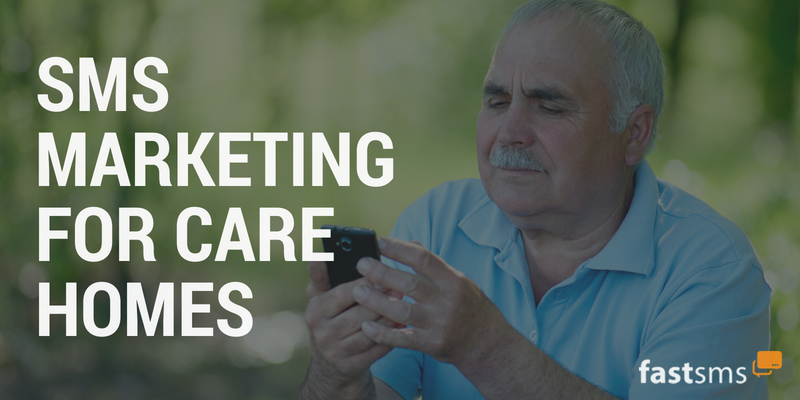How to Use SMS Messaging to Keep Your Club Members Healthy

What do people want most out of a health club? The knee-jerk response is probably “Get fit.” Another one may be “Lose weight.” And people certainly do want those things.
But in a report released last week by Nielsen, it turns out people want more than just to see a lower number on the scale. In their study, 75% of people worldwide plan to lose weight by changing their diet. And another 72% plan to exercise – that’s where your health club comes in.
But overall, the responses indicated a more important trend. Almost 80% of people were interested in getting healthy by using “foods to forestall health issues and medical conditions, such as obesity, diabetes, high cholesterol and hypertension”.
The Nielsen study was aimed at letting manufacturers know how to leverage the trends, but your health club can use the data too. By understanding your members want more than to just build muscle, lose weight or fit back into that bikini in three months (though they may want that too!), you’ll be able to support them better. And if you can be the one encouraging and informing them on their journey to health, more of them will turn into long term members.
Now that you know your members are interested in achieving health more than anything, here are some ideas on how you can do that using SMS messaging.
- Send links to healthy recipes. Nielsen’s report pointed out food was a major issue for people. In particular, people were looking for ways to reduce sugar, fat, and sodium. They want healthful foods. Offer your members the opportunity to opt in for daily or weekly healthy recipes sent via SMS. Since people are more likely to see an SMS message than say emails or hand-outs at the club, they’ll be sure never to miss any delicious opportunities.
- Offer a chance to check in with a “health coach”. Many people know they want to be healthier but are lost searching through the huge amount of information available. Send members a text asking if they want to sign up for a free one-on-one consultation with someone about their diet and what simple changes they can make. If they reply “YES” to the message your staff can set up an appointment, then send an SMS reminder too.
- Send notices about any health workshops you’re holding. Fitness and diet go hand in hand to produce health. If you run informational workshops, make sure your members know about it by sending a text message. You can send reminders via text too once they sign up.
Notice that some of these ideas are based on offering something to your users from a third party. Providing you choose these well and they do a good job you are establishing yourself as an authority. If the third party wins business through you they may offer you a commission or, alternatively, refer their clients to you in return. Maybe they’ll let you use SMS messaging to contact their user list?
These are three simple activities you may already offer to your members. But everyone is so busy it’s hard to remember things, even if you want to do them. By using SMS messaging to raise awareness, sign ups and for reminders, you’ll probably increase participation. There just isn’t a more direct form of communication that works better for people on the go.
For even more examples of how you could benefit from using SMS messaging download our “Health Club SMS Guide“. It is full of practical tips and advice from health clubs already using SMS in their business to great effect.
Related Articles
Help Patients Stay Healthy with SMS Reminders to Take Their Prescriptions
Last year, over 1 billion prescription items were dispensed in England. There were, on average, 19 prescription items per person in England, almost half the population is taking prescription medications. It's safe to assume some people are finding it hard to keep track, enter SMS.
Referral Marketing Through SMS Messaging
What is one almost guaranteed way of getting new customers? Ask for them. Really. Studies show that 83% of satisfied customers are willing to recommend a company, product or service to their family and friends. Here's how you can use SMS to simplify and improve your referral marketing.
Pagers vs. SMS Messaging for Emergency Services
For decades, all kinds of emergency personnel relied on pagers to communicate with each other and their organisations. The system was created long before the days of mobile phones or even text messaging. But now things are changing, as we explain in this blog post.
How Sports Clubs and Fitness Centres are Using SMS Marketing to Their Advantage
Statistics show that a huge 98% of text messages are opened within the first fifteen minutes of being received, so it's little wonder that sports organisations and fitness centres have been looking to take advantage of a potentially lucrative market.
5 Facts Your Business Should Know About A2P SMS Messaging
Is SMS messaging a good investment of your business’ time and money? A report from Mobile Ecosystem Forum shares some data on how SMS is being used, who is using it, and provides some evidence showing the answer to that question is most likely “Yes”!
SMS Marketing for the Beauty Industry
In the 21st century, it’s easy to lose track of all the technology needed to make you the biggest profit and improve your reputation. With our simple SMS services, you can drag your business into the modern age with relative ease, reducing missed appointments and increasing your bottom line.
How to Use SMS Messaging to Avoid False Hope Syndrome in 2017
False Hope Syndrome happens to nearly 90 % of the people who make New Year’s resolutions. People set grand, hopeful, but unreasonable goals for themselves. But if you can get yourself to focus on something specific you want to improve, SMS messaging can help you achieve it.












